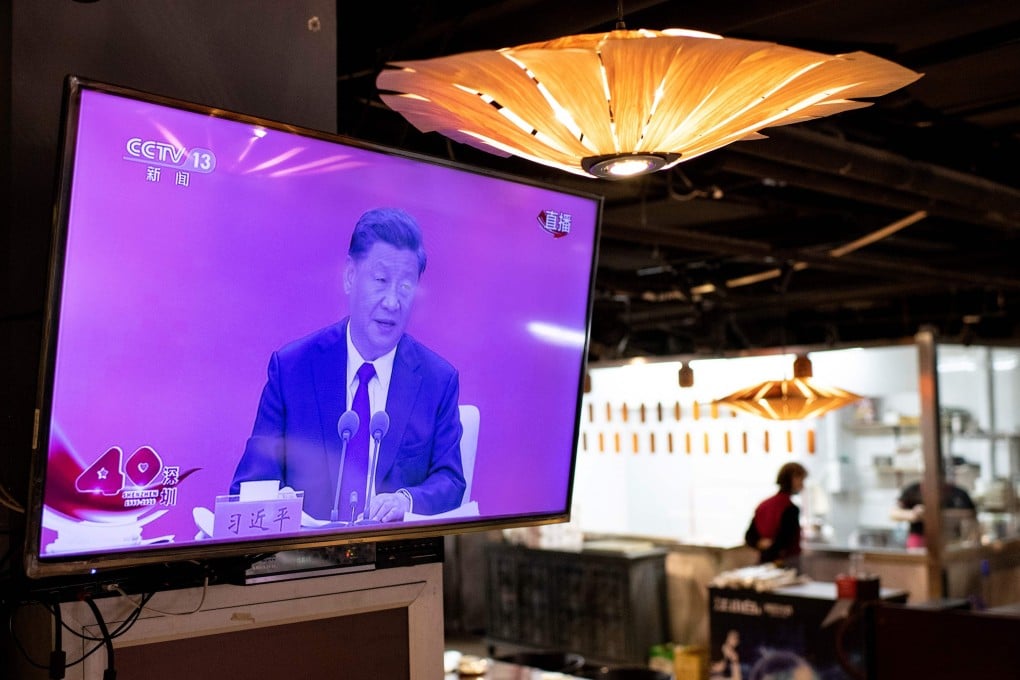Xi Jinping calls on Shenzhen to create ‘another miracle’ in next stage of reform
- Chinese president says the country will continue to integrate into the world economy in speech marking 40th anniversary of special economic zone
- He tasks city with becoming world-class innovation powerhouse and says it will be given more autonomy to make reforms

He said China would continue to integrate into the world economy instead of pivoting to an economy with an inward-looking focus – although his “dual-cycle model” emphasises domestic-led growth.
“Shenzhen should build high grounds for technology and innovation with global influence. It should plan innovation chains around its industries and plan its industries around innovation chains,” he told over 800 officials and entrepreneurs from the mainland, Hong Kong and Macau gathered at a convention centre in Qianhai. “It should plan and nourish new industries with foresight and to develop a digital economy.”
He also urged the city to step up fundamental scientific research and integrate into the global innovation network.

02:01
Xi Jinping vows to promote Shenzhen as global trade hub during 40th anniversary visit